We don't just write about Chromebooks, we use them every day. That gives us insight into which are best for your needs, your wallet, and your life.
While there are super-powerful, super-premium Chromebooks out there, for most folks, you can get a perfectly great Chromebook experience without spending that kind of money with the Lenovo Chromebook C330 or the ASUS Chromebook Flip C213. If you need a bigger, beefier setup, the HP Chromebook x360 14 and Lenovo Yoga C630 Chromebook can use Chrome OS to take full advantage of the hardware inside and provide a top-notch computing experience.
Best Chromebooks of 2019:
- 1. Lenovo Chromebook C330 — Best overall
- 2. ASUS Chromebook Flip C302 — Best premium on a budget
- 3. HP Chromebook X2 — Best Chrome OS tablet
- 4. Google Pixelbook — Best for bleeding edge users
- 4. ASUS Chromebook Flip C213 — Best for students
- 4. HP Chromebook x360 14 — Best for professionals
- 4. Lenovo Yoga C630 Chromebook — Best big-screen Chromebook
- 4. ASUS Chromebook Flip 101 — Best compact Chromebook
Our pick
Lenovo Chromebook C330
Lenovo's diamond in the rough Chromebook is just right.
This zippy little Chromebook can last over 10 hours, won't weigh down your backpack during an all-day excursion, and with 64 GB of storage, you won't run out of local space anytime soon.
Lenovo Chromebook C330 Features
- Bright 11.6" touchscreen
- True 10-hour battery life
- Excellent performance for the price
- 4 GB RAM, 64 GB storage
- Balanced weight and size
- Bright, shimmery 2-in-1 design
This Chromebook balances size with productivity, style with substance, and panache with price, because the best Chromebook is one that everyone can pick up and fall in love with. The screen is bright, text is easy to read and you can easily split screen windows on this 11.6-inch screen without things being cramped. Homework to the left, YouTube to the right!
If you want a Chromebook you can carry without the bulky charger on a normal day, the Lenovo Chromebook C330 won't let you down. Even on max brightness, I've gotten over 6 hours of use on a single charge, and on the lower brightnesses I prefer, I've even pushed it to 12 hours of use before it begged for a charger.
Auto Update Expiration date: June 2022
Runner-up
ASUS Chromebook Flip C302CA-DHM4
Premium package without a premium price tag
Like the idea of the C330 but want something a little more powerful and a little more refined? Meet the ASUS Chromebook Flip C302, an all-metal 2-in-1 touchscreen Chromebook with a larger screen and a beefier processor.
ASUS Chromebook Flip C302 Features
- 12.5" 1080p Gorilla Glass touchscreen
- All-metal 2-in-1 construction
- Intel Core m3 processor
- 4 GB RAM, 64 GB storage
- Up to 10 hour battery life
- Weighs 2.6 lbs
ASUS is one of the better Chromebook makers around, and the C302 has been a go-to for many enthusiasts when recommending a Chromebook that will go the distance and look good doing it. The base C302CA-DHM4 sports an Intel Core m3, and if you're really feeling spendy you can spring for the $611 Intel Core m5 version, but the m3 should be enough for most folks.
With a 12.5-inch 1080p Gorilla Glass touchscreen and full-metal construction, this Chromebook looks good cranking through anything, whether a business presentation or an in-flight Hulu binge. The size is big enough to see everything with ease no matter your display zoom preferences but small enough to still be easily portable.
Auto Update Expiration date: November 2022
Best tablet
HP Chromebook X2
Winner as a tablet and a Chromebook
This powerful Chromebook does double-duty as a tablet — complete with a precision stylus — making the HP Chromebook X2 the perfect Chromebook for creators, consumers, and casual Android gamers alike.
HP Chromebook X2 Features
- Vibrant 12.3" 3:2 2K touchscreen
- Powerful m3 processor
- Battery lasts up to 12 hours
- 4 GB RAM, 32 GB storage
- First Chromebook detachable
- Great for multi-tasking
We love the X2's Intel Core m3 processor and 0.3-inch thickness, but its screen just runs away with the show. It's the very same 12.3-inch 2400x1600 IPS touch panel that you'll find on the Pixelbook or Samsung Chromebook Pro, and with a productivity-friendly 3:2 aspect ratio, this detachable is worth every penny of its premium price if you want to splurge.
This screen also supports active styluses, and the one included with the X2 is a beauty that makes you want to pull out a sketchbook app and get doodling, but there are still fewer apps to take advantage of that on Chromebooks than we'd like. This was the first Chrome detachable, and with the Pixel Slate still kind of a buggy mess, this is still the best Chrome tablet.
Auto Update Expiration date: June 2024
Google's own
Google Pixelbook
Google's stylish and super-premium Chromebook
As Google's Halo device, the Pixelbook oozes "premium" when using it, has the best keyboard and trackpad of any Chromebook, and a gorgeous touchscreen. It was also designed from the ground up for Google Play and use as an Android tablet, and it excels at it. While you'll pay more than triple the price of our top pick, for some, it will be worth it.
Google Pixelbook Features
- Bright 12.3" 3:2 2K touchscreen
- Ultra-premium "Halo" device
- Up to 10 hour battery life
- 8-16 GB RAM, 128-512 GB storage
- Intel i5 or i7 processor
- First for new features
The Pixelbook is a status symbol as a Chromebook, a vision of what Chrome OS can do with top-end specs and top-end design, which makes it alluring but too pricey for most users. If you live for having the latest features, the Pixelbook is for you because as Google's branded Chromebook, this shiny baby gets all the new toys before anyone else does.
The Pixelbook is not rugged and not made to take any sort of a beating, so get it a nice, well-cushioned case if you intend to use it out and about in the world. You'll also want to invest in some USB-C hubs, as the Pixelbook only has three ports: a headphone jack and a USB-C port on either side of the chassis.
Auto Update Expiration date: June 2024
Best for students
ASUS Chromebook Flip C213
This rugged Chromebook is ready to learn
This rugged little brother of the C302 is tailor-made for clumsy kids and chaotic classrooms with military ruggedness, a Gorilla Glass screen, and a spill-resistant keyboard.
ASUS Chromebook Flip C213 Features
- Durable 11.6" touchscreen
- Mil-STD-810G rugged 2-in-1
- Up to 12 hour battery life
- 4 GB RAM, 32 GB storage
- Spill-resistant keyboard
- 2 cameras for video conferencing
This 11.6-inch Chromebook folds completely flat into tablet mode with a high-strength zinc alloy hinge that shouldn't wear out no matter how hard your kid — or you — are on it, and with a channeled, spill-resistant keyboard, if in-flight turbulence sends your Coke or coffee over your Chromebook, you're not out $300 for a new one.
The C213 could benefit from a larger storage option, which its successor, the ASUS Chromebook Flip C214 will have when it arrives later this spring. The new model will also move the secondary camera from the top of the keyboard to the lower right corner, putting it top right when the Chromebook is in tablet mode, but also making it more prone to grease buildup since it will sit near the user's palm.
Auto Update Expiration date: November 2023
Best for professionals
HP Chromebook x360 14
High-class look that can work all day long
This larger Chromebook is still thin and light enough for your daily gear bag, big enough for large spreadsheets or watching that livestream while still getting your projects in under deadline.
HP Chromebook x360 14 Features
- 14" 1080p touchscreen
- Great backlit keyboard
- Large glass trackpad
- 8 GB RAM, 64 GB storage
- Up to 13 hour battery life
- Thin aluminum/plastic build
This Chromebook is on the large side of portable, but between it's thin, solid construction, wonderfully long battery life, and extra RAM, the x360 14 is a Chromebook that can do it all. One of the few Chromebooks to offer a backlit keyboard, this i3-powered laptop is perfect for long nights and dim offices.
The striking two-tone color scheme of the aluminum x360 14 stands out from the sea of black and grey Chromebooks we normally see. HP fits a 14-inch laptop in a 13-inch shell with slim side bezels, while still keeping thick enough top and bottom bezels to easily hold in tablet mode.
Auto Update Expiration date: June 2024
Best big-screen Chromebook
Lenovo Yoga C630 Chromebook
Take Chrome OS to the limit in 4K
This beefy Chromebook is great for watching movies in your hotel room or split-screening your way through long days of editing, but you'll want to keep its charger handy.
Lenovo Yoga C630 Chromebook Features
- 15.6" 1080p or 4K touchscreen
- Beautiful Midnight Blue aluminum
- i3 or i5 processor
- 8 GB RAM, 64-128 GB storage
- Good port configuration
- Huge 2-in-1 great for media
If you want a Chromebook with a big, beautiful screen that's great for split-screening Chrome tabs or watching movies while you kill downtime on your business trip or vacation, the C630's 4K model is made perfectly for you. It's not the most portable Chromebook around, but it's big, beefy, and good at what it does: viewing 4K video and multi-tasking.
If you're going to get a Yoga C630 Chromebook, go for the 4K model. This screen is bright, beautiful, and Chrome OS's display zoom allows you to get everything exactly the size you want it without downscaling any of your media. Battery life only averaged four to six hours on medium-low brightness levels, so you'll need to pack the charger every time you head out with it.
Auto Update Expiration date: June 2024
Best compact Chromebook
ASUS Chromebook Flip C101PA
Travel-sized for your Chrome convenience
This pint-sized computer gives you the size of a tablet and the functionality of a laptop. The keyboard might be a tiny bit cramped for some users, but to younger users, this Chromebook is just right.
ASUS Chromebook Flip C101PA Features
- 10.1" IPS touchscreen
- Up to 9 hours battery life
- Weighs 2 lbs
- 4 GB RAM, 16-32 GB storage
- All-metal construction
- Features USB-C and USB-A ports
There aren't many 10-inch Chromebooks around these days — and Chromebook tablets are still slowly making their way to market — but the Chromebook Flip has cornered that market for years, first with the Flip C100 and now with the C101.
The 16 GB model isn't as widely available anymore, and good riddance, because the only C101 you should buy is the 32 GB version. Even though you can use a microSD card to add on extra space, there are some things you can only use the internal storage for, so get the bigger one.
Auto Update Expiration date: August 2023
Recap — There's a Chromebook out there for everyone
Chromebooks might get pegged as only being for students and salarymen, but there truly is a Chromebook for everyone these days, whether you're just browsing email and social media or getting down and dirty with Linux apps and coding IDEs. And with Stadia on the horizon, gaming on a Chromebook will be here soon, too. While there are a lot of great Chromebook manufacturers out there, Lenovo and ASUS's models seem to go harder and last longer than the competition, though Samsung, Dell and HP can make some pretty premium Chromebooks when they put their minds to it.
How to pick the best Chromebook
Choosing your Chromebook is slightly different than picking a Windows or Mac laptop due to the standardized, cloud-centric nature of Chrome OS. Because Google controls the software look and update schedule for every Chromebook model, a Chromebook built by Lenovo should act the same as a Chromebook from Dell or Samsung. So what does that mean?
It means you can focus a little less on those core specs and focus more on what you want to do with the machine you choose. This process may seem slightly out of order, but trust me on this one:
1. Get one with a touchscreen — a 2-in-1 if you can
Touchscreens may be a luxury for other laptop systems, but on Chromebooks, I consider it a requirement. Chrome OS's touch optimization is getting better every month, and since most of the Android apps Chromebooks can install via Google Play are optimized for touch, treat yourself to a touchscreen model!
Touchscreen models usually aren't that much more expensive for Chromebooks in 2019 — many Chromebook models don't even bother with non-touchscreen versions these days — but if you see a Chromebook that says it's non-touch, walk away and don't look back. It's a wonderful thing to be able to just tap on the screen when scrolling through Amazon, and after playing Solitaire on a touchscreen, you'll never go back to using a mouse.
That touchscreen comes in even handier on 2-in-1s, the best form factor I've seen for Chromebooks yet. Being able to prop up your Chromebook in Tent mode for a movie, or fold it flat into Tablet mode for some in-bed browsing while down with the flu is amazing, but having a 360-degree hinge is great for everyday productivity, too. You can bend your Chromebook back to more angles when working in awkwardly-lit offices with weird light glare or propped in your lap at a ballgame because you totally didn't forget those quarterly expense reports that were due tomorrow and refuse to skip the game for that.
2. Decide on the other features you want
Chrome OS is almost entirely the same on every device from a software perspective, which means that standout hardware features become paramount, and figuring out which of those features you want or need in a machine can really help narrow the field steer you to your perfect Chromebook.
As mentioned before, you want a touchscreen Chromebook — a 2-in-1 if you can swing it — but if you tend to do a lot of movie-watching, you may want a really high-quality screen, or loud, front-facing speakers.
If you're looking to be more productive with a multitude of open tabs and multi-window screens, you might want a 3:2 screen that's more suited to split-screening and a more powerful processor/memory configuration. Productivity-minded users should also pay special mind to the port configurations on their prospective Chromebooks, as USB-C starts to replace most other ports on more premium Chromebooks like the Pixelbook while more grounded models keep USB-A ports around alongside new USB-C charging ports.
Families with younger kids — or travelers that are prone to slips, spills, and accidents — might want to look to the growing number of Chromebooks with military-grade MIL-STD 810G durability or spill-resistant keyboards.
3. Pick your size
Chromebooks come in a variety of sizes but they tend to gravitate to four sizes in general:
- 11.6-inch models are portable and affordable. At their smaller size, their screens can look good, even if they're less than 1080p native resolution — though screen resolution is handled a bit differently on Chrome OS; we'll get to that a little later. Depending on the bezels on the screen, 11.6-inch Chromebooks can either have full-sized keys or slightly shrunken keys, though most manufacturers use full-size keys on 11.6-inch models.
- 12.3-12.5-inch models are becoming more and more popular, especially with detachables and 2-in-1s like the HP Chromebook X2, Microsoft's Surface Pro line and the Google Pixel Slate. These models often have a 3:2 aspect ratio, which makes them more useful for split-screening windows, multitasking, and sketch/photography apps.
- 14-inch models sit at the high margin for the portable category, but with thin bezels and proper engineering, these can be almost as portable and manageable as 13-inch laptops with 7-9 hour battery lives. If you need to display your text at a larger font — and yes, Chrome OS has a separate font scale independent of the display zoom — a 14-inch model is your best bet for a productive Chromebook that won't strain your eyes, especially as most 14-inch models start at 1080p.
- 15.6-inch models are made for desks and dining room tables. I lovingly refer to these as LINOs — Laptop in name only — because while you can shove them into larger laptop backpacks for a vacation, these Chromebooks aren't made for laps and tray tables, they are made for a normal office environment where they normally live in peace. These larger laptops are great for productivity because you can see more at one time, but they tend to have shorter battery lives and higher weights, which dissuade them from being dragged around daily.
In general, the bigger the size of your Chromebook, the more you can potentially fit on the screen, but it will also be less portable and shorter in battery life. The smaller it is, the less heavy and (usually) less expensive it will be, but smaller models can also suffer from lower resolution screens, though Chrome OS's display zoom and font adjustments can somewhat offset it.
4. Memory and storage — what do you really need?
RAM — Random Access Memory — is a critical spec for computers of all sizes and shapes, from phones and tablets to desktops and laptops. It's used by your computer's processor(s) to hold your current tabs, apps, and execute the commands, clicks, and operations that make your Chromebook work.
So how much RAM do I need? 4 GB of RAM in a Chromebook is fine today. 8 GB is better, and high-end Chromebooks can come with 16 GB or more, but 4 GB of RAM is more than enough to run Chrome OS with a couple of apps and a dozen Chrome tabs.
If you're a long-time Windows user — or really a long-time computer user of any kind — looking at the storage on most Chromebooks will seem confusing at first because it's not going to sound like enough. Chrome OS is based around cloud storage — Google Drive is integrated directly into the Files app — but local storage is still important for things like Android apps from Google Play, offline documents and downloaded music/movies for those horrible Wi-Fi-less flights.
You can also expand the storage on many Chromebooks with an SD or microSD card, but there's no beating good local storage to start with. 32 GB of storage is workable, but I'd recommend going with a model with at least 64 GB of storage. Finding 128 GB or more is usually reserved for premium Chromebooks with $500+ price tags, but 64 GB Chromebooks are pretty widely available and offer more than enough storage for some Drive offline syncing and some emergency entertainment.
5. Always check the expiration date!
Chrome OS is developed, managed and updated by Google for all Chromebooks, but Google doesn't want to be stuck supporting every random budget chipset and driver set forever, so each and every Chromebook has a shelf life and an expiration date, just like the milk in your fridge! This is the Auto Update Expiration date, and it can be found for every single model on this handy dandy support page, which I have bookmarked because I am a freak and you should bookmark while you're shopping for Chromebooks.
Now, a Chromebook doesn't turn into a pumpkin on its AUE date — assuming your Chromebook lasts three to six years until that date — but it does stop receiving those system updates every Chromebook gets every four to six weeks that contain bug fixes, security patches and new features. If your Chromebook is still running decently at that time, you're a champ, and with a teeny bit of know-how, you can reformat it to run one of a dozen Linux distros instead.
That said, four to six years is a long time for any laptop and chances are yours will be getting long in the tooth by then, but right now when shopping, always check the AUE to see how long your Chromebook will get updates. Some Chromebooks have shorter lifetimes than others if they're built on the same platform as a previous Chromebook — AUE is based on hardware platform, not individual model, which is also why many Chromebooks have the same AUE dates — so it's something you'll always want to check before buying, even if the model itself is brand-new.
What is Chrome OS?
Chromebooks run Chrome OS, the Google-managed version of Chromium OS, a free Linux distribution that is open-source, lightweight, and web-centric. Chrome OS does not allow you to install regular applications and programs the way you would on Windows PCs; instead Chromebooks rely on web-based applications, Android applications installed and managed via Google Play, and Linux apps, which are slowly rolling out to more and more Chromebook models.
Chrome OS's biggest strength lies in its lightweight stability and reliability. On computers with specs that barely support other operating systems, Chrome OS runs adequately and often excellently, meaning that for lower-end laptops, Chromebooks rule! That said, Chrome can take advantage of the most powerful components available — from latest-gen multi-core processors to 4K displays — to create a super-smooth, super-powered premium experience.
Chrome OS is designed in large part for education and enterprise, which means the system is hard-to-break, easy-to-manage — all updates are handled in the background by the system itself — and wonderfully secure, with a lucrative bounty program, including a $100,000 standing bounty for anyone who finds ways to compromise Chrome OS in its extra-locked-down Guest mode.
In short, Chrome OS is a lightweight, high-security system that's great for users with any level of technical know-how. Chromebooks are easy enough for school children to use and powerful enough for bigshot businessmen, which means that they're great for everyone that doesn't need system-specific high-intensity programs like video editors, CAD rendering, and PC gaming — and even that's coming to Chromebooks soon with Stadia.
What are the best Chromebooks for students?
For students — and for younger users in general — you'll want to look for a rugged machine a portable size. 11.6-inch Chromebooks are 10-inch Chromebook tablets dominate the space, with slightly older/lower specs to help offset their rugged requirements and cut-throat pricing.
4 best Chromebooks for students:
ASUS Chromebook Flip C213
This model is about to be replaced by the C214, which means it's starting to see even deeper price cuts for a dependable, rugged Chromebook.
Lenovo 500e Chromebook (2nd Gen)
This rugged laptop has military ruggedness, a Wacom EMR stylus for sketching, lasts 10 hours on a single charge, and will be updated until June 2023.
Acer Chromebook Tab 10
The 9.7-inch screen is the perfect size for smaller hands and classrooms. This was the first of the education Chromebook Tabs and will be updated until August 2023.
Lenovo Chromebook C330
This Chromebook doesn't have the same rugged rating as the rest of these education-minded Chromebooks, but it does have a lower price and 64GB of storage.
What are the best Chromebooks for travelers?
Did you know that Chromebooks have become handy for frequent international travelers because they're so easy to restore that some Powerwash their Chromebooks before and/or after going through Customs to make sure their data and machine are not compromised by snooping government agencies?
Chromebooks are also great for travelers since because most if not all of your data is backed up to the cloud, should yours be stolen or broken abroad, if someone steals or breaks yours, you aren't losing your entire life's data; just a console you accessed it through.
4 best Chromebooks for travelers:
Lenovo Chromebook C330
This zippy little Chromebook can last over 10 hours, won't weigh down your backpack as you run across two terminals, and has 64GB of space for downloading in-flight movies.
HP Chromebook X2
Between Android apps and a 2K screen, this is a rock-solid Chromebook for work and play, and you can ditch the keyboard for tablet-mode movies in bed.
Samsung Chromebook Plus with LTE
Never seems to have Wi-Fi when you need it? This model of the stellar Chromebook Plus features built-in LTE, allowing you to give it its own data plan.
ASUS Chromebook Flip C302CA-DHM4
This fine-looking 12.5-inch Chromebook will look just fine in first class, business class, or coach as you fine-tune your business proposal or binge some Hulu.
Once you've got your priorities straight and pick the Chromebook that's perfect for you, you're ready to enter a new world of light, secure computing with the handy productivity of Chrome and Android apps from Google Play. Welcome to the club and enjoy!
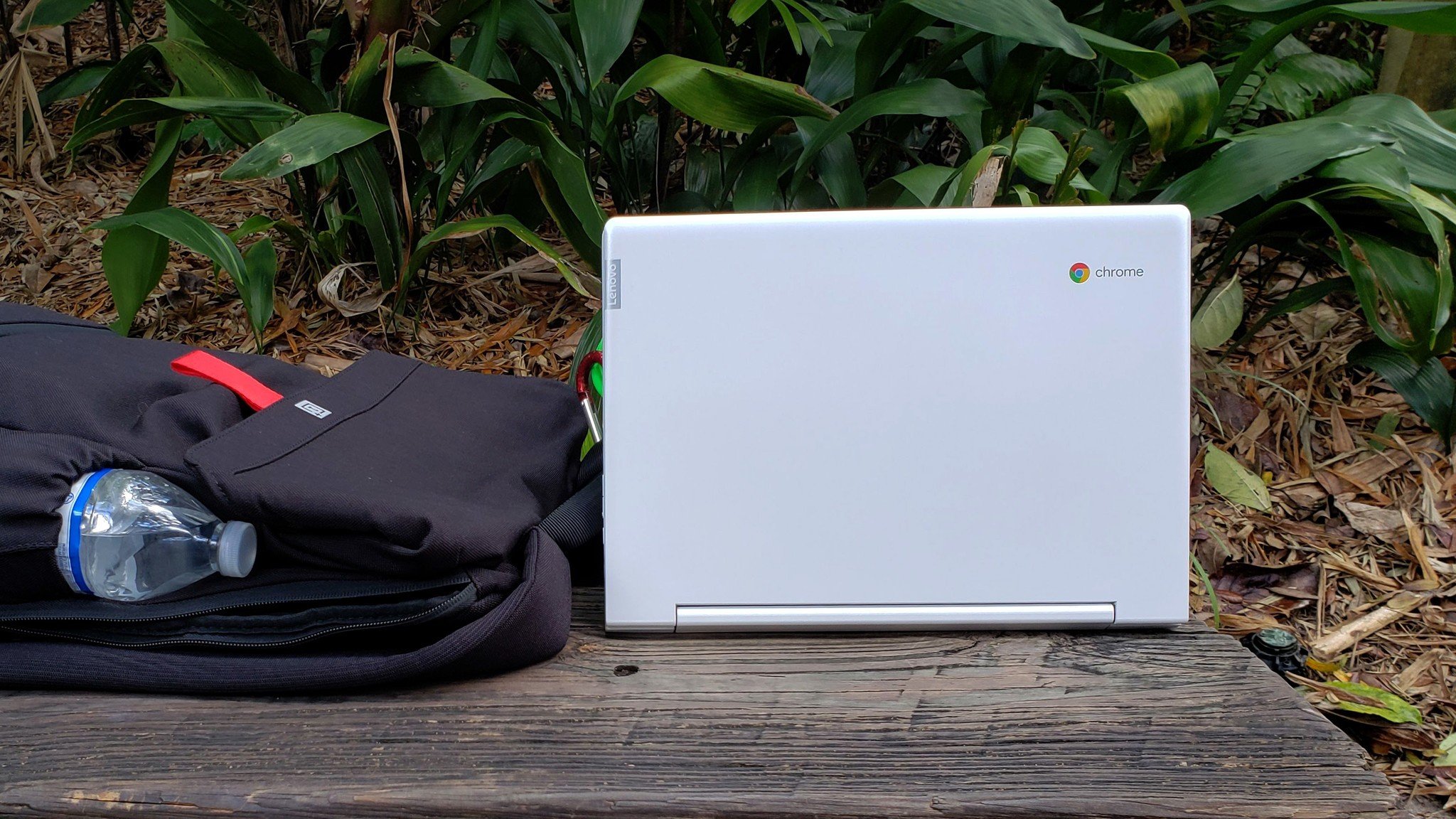
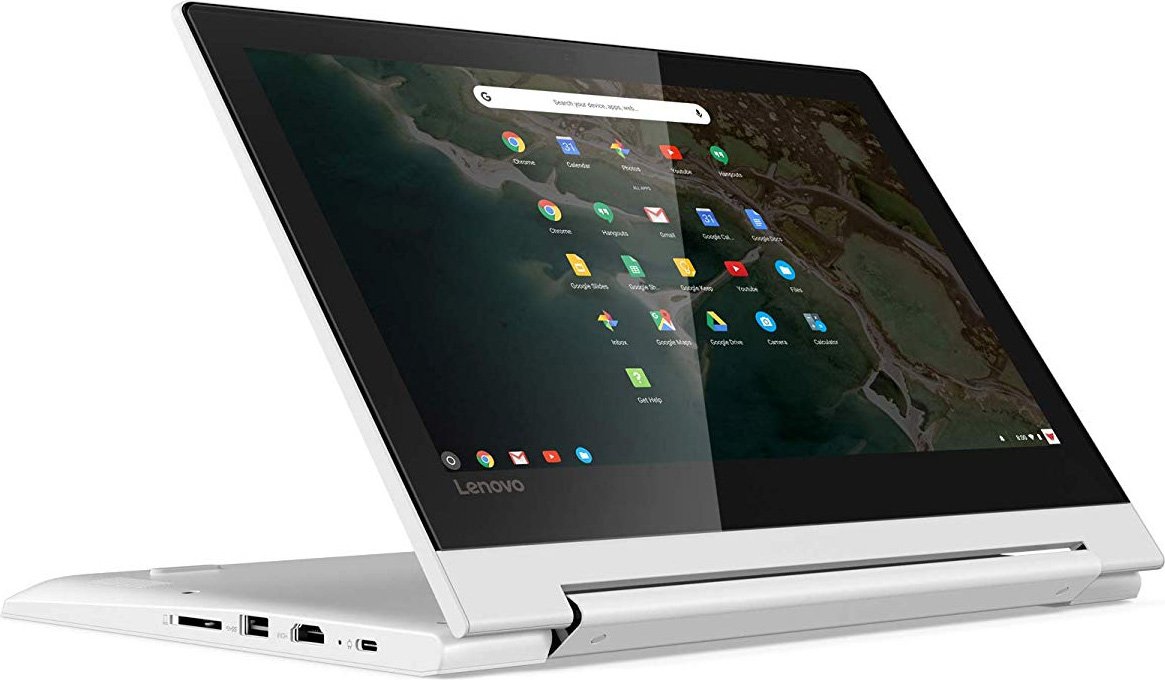


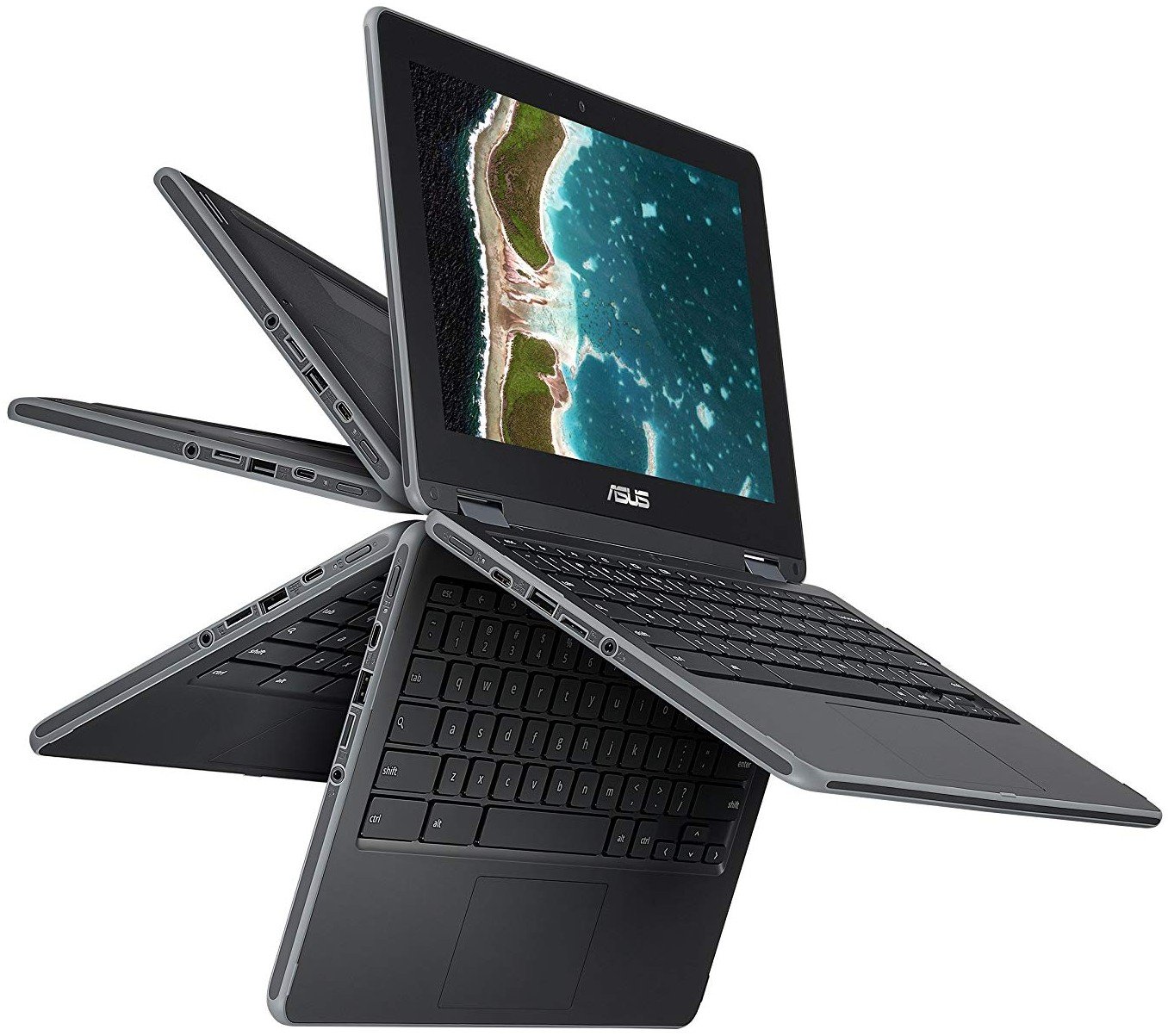
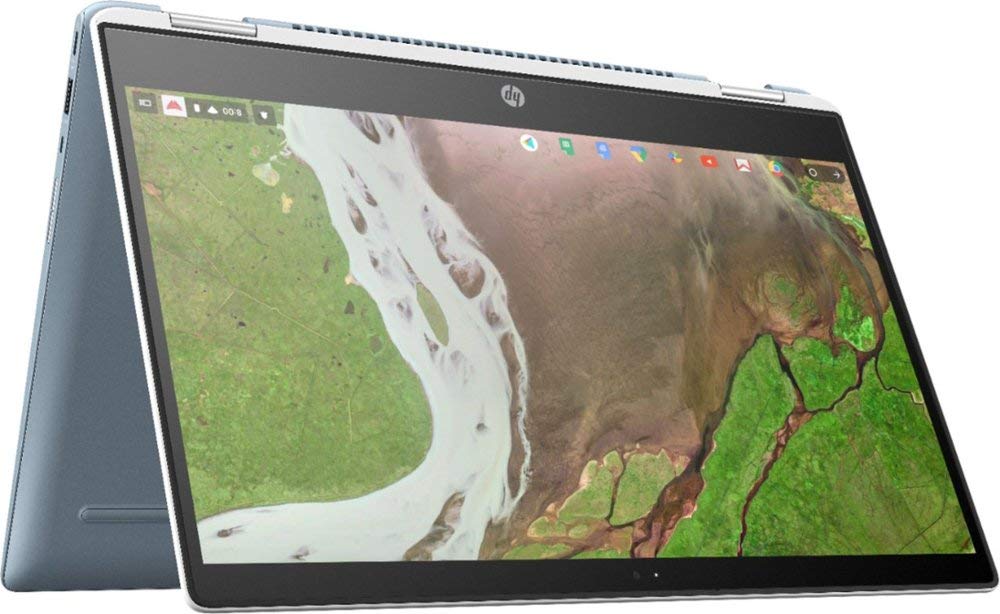


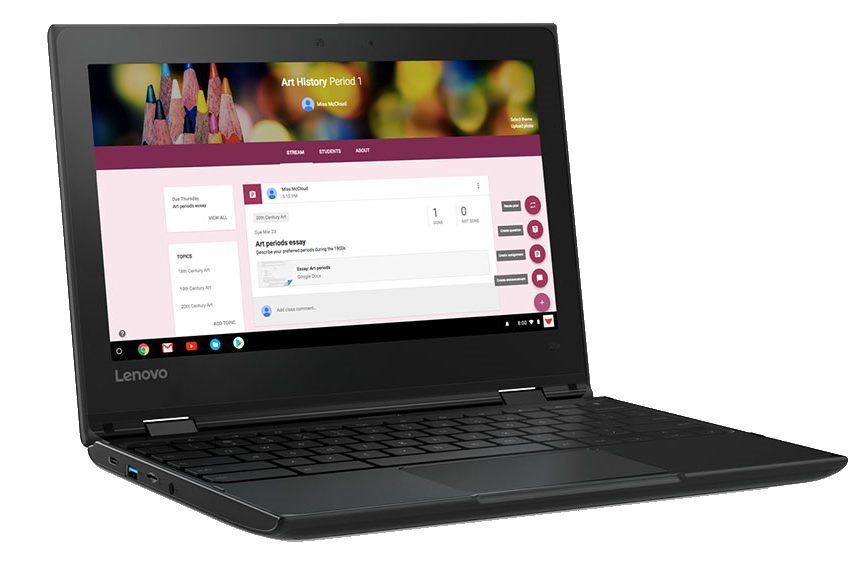
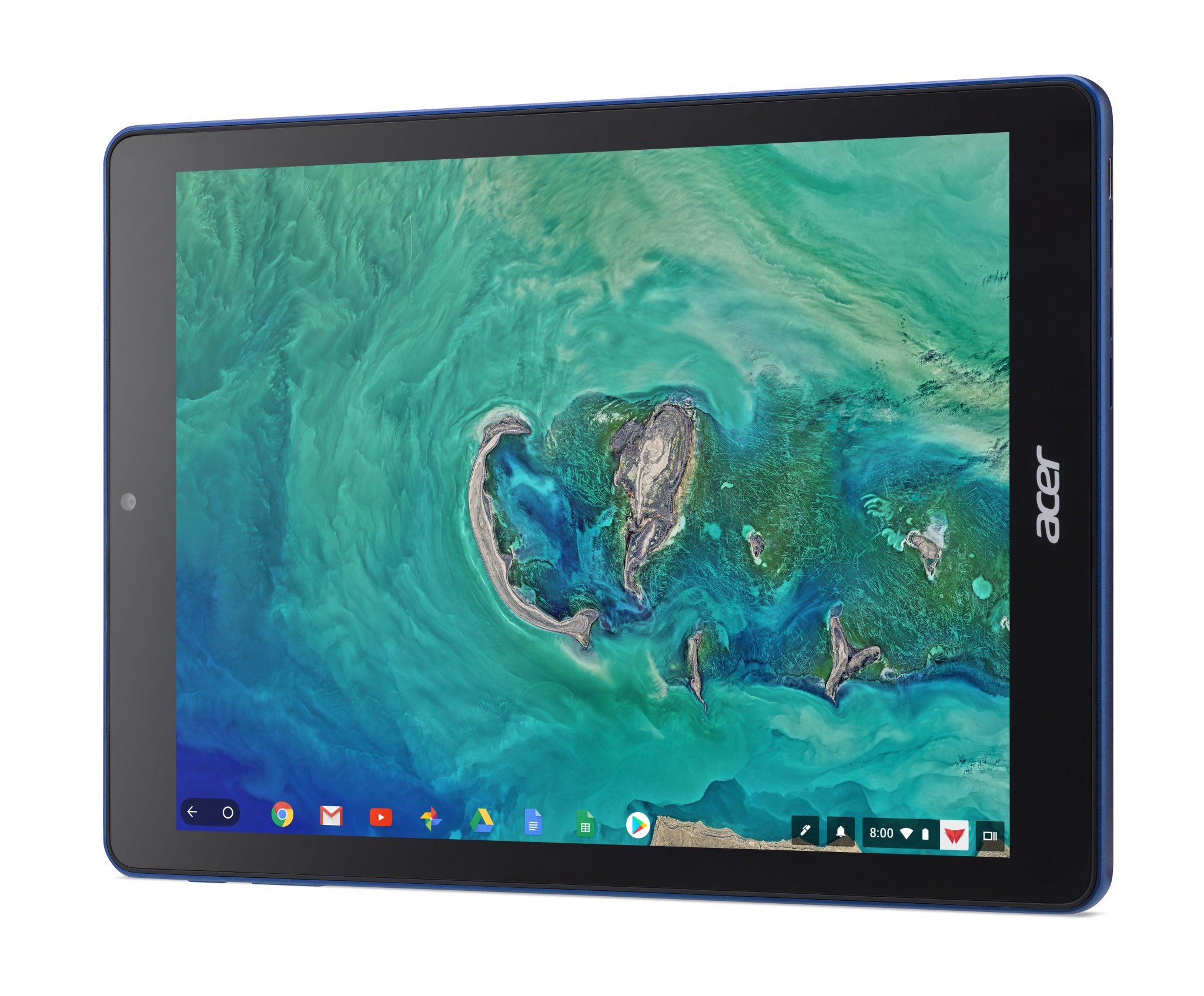
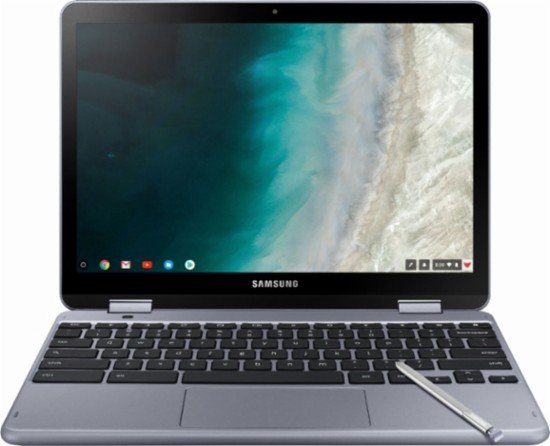
0 Response to "You Can See More: These are all the best Chromebooks, including the Lenovo Chromebook C330!"
Post a Comment